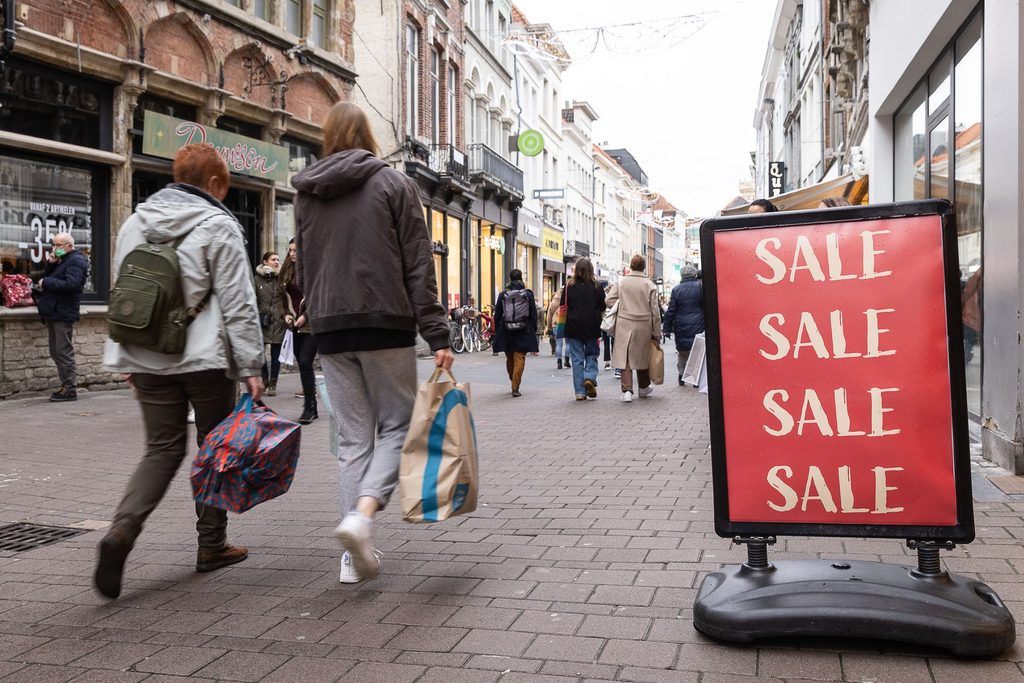A new study has found that "greedflation" – the tendency for companies to boost profits during inflationary periods through unnecessary price hikes – has not significantly contributed to Belgium's soaring inflation rate.
The report, which was published on Monday by the National Bank of Belgium (NBB), found that the majority of the 105,000 companies analysed experienced greater cost increases than sales growth in 2022. According to the study's authors, this suggests that price rises did not directly translate to an increase in profits.
"Most firms have not been able to fully pass on their cost increases," the report noted. "On the whole, these findings suggest an absence of widespread greedflation in Belgium in 2022."
Study co-author Cédric Duprez clarified to L'Echo that the report does not imply that greedflation does not exist at all in Belgium, but rather that it is a relatively minor and even isolated phenomenon.
"This does not mean that some companies have not taken advantage of the crisis to artificially inflate their margins, but on average this is not what has happened," he said.
Wage indexation also not to blame
In addition, the study found that Belgium's system of automatic wage indexations is largely not responsible for recent price rises.
"This has contributed to a certain extent, but it is also not the key element for 2022," Duprez said. He also drew attention to the study's "rather reassuring" conclusion that wage indexations have not yet induced a wage-price spiral, whereby wage rises lead to a surge in prices which then leads to greater demand for further wage increases.
Instead, the study blamed the current inflation crisis on price increases for raw materials, especially energy. These, in turn, were caused by an increase in energy demand following the end of the Covid-19 pandemic, as well as decreases in supply due to the ongoing war in Ukraine.
An analytical outlier?
The study's conclusions would appear to contradict those of several other recent analyses which have suggested that greedflation does, in fact, bear considerable responsibility for Belgium's high inflation rate.
One study published earlier this month by ULB economics lecturer Olivier Malay "conservatively" estimated that Belgian companies made €35 billion in "opportunistic profits" over the period 2021 to 2022, with the true figure potentially being as high as €40 billion – equivalent to almost 4% of Belgium's cumulative GDP.
"These are the profits made by price increases higher than those necessary to compensate for cost increases," Malay wrote. "They correspond to an increase in average bills of €3,200 per person over the two years, i.e., a significant part of the inflation of the last two years."
Related News
- Greedflation cost the average Belgian €3,200 in two years, study finds
- Automatic wage indexations 'main risk' to Belgium's economy, OECD claims
- The price of avarice: Study reveals greedflation's role in Belgium's inflation crisis
Another recent analysis by Thomas Greuse, an economist at the Confederation of Christian Trade Unions (CSC), found that unwarranted price increases contributed more to inflation last year than government-mandated wage indexations.
"Companies have therefore more than compensated for the increases in their intermediate costs and the increase in wages," Greuse explained. "This is a concrete example of greedflation."
Last month, Belgium's inflation rate was 5.20%: more than two-and-a-half times the European Central Bank's 2% target rate, and more than three-and-a-half times higher than in May 2021.

